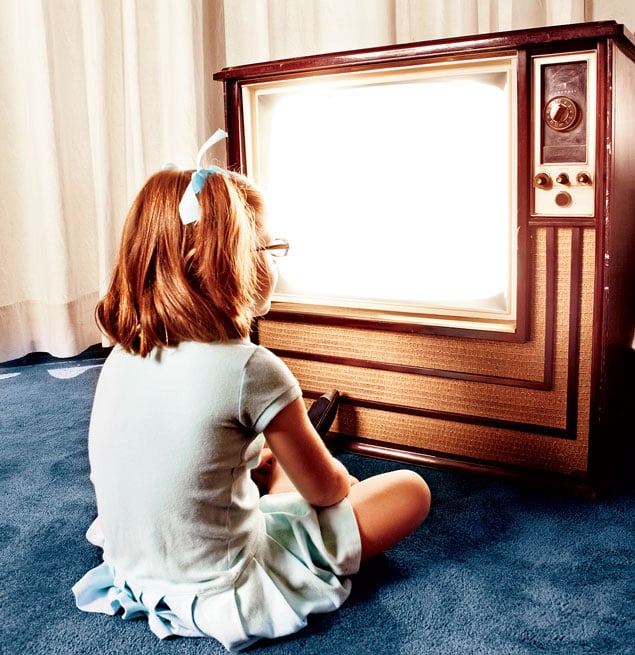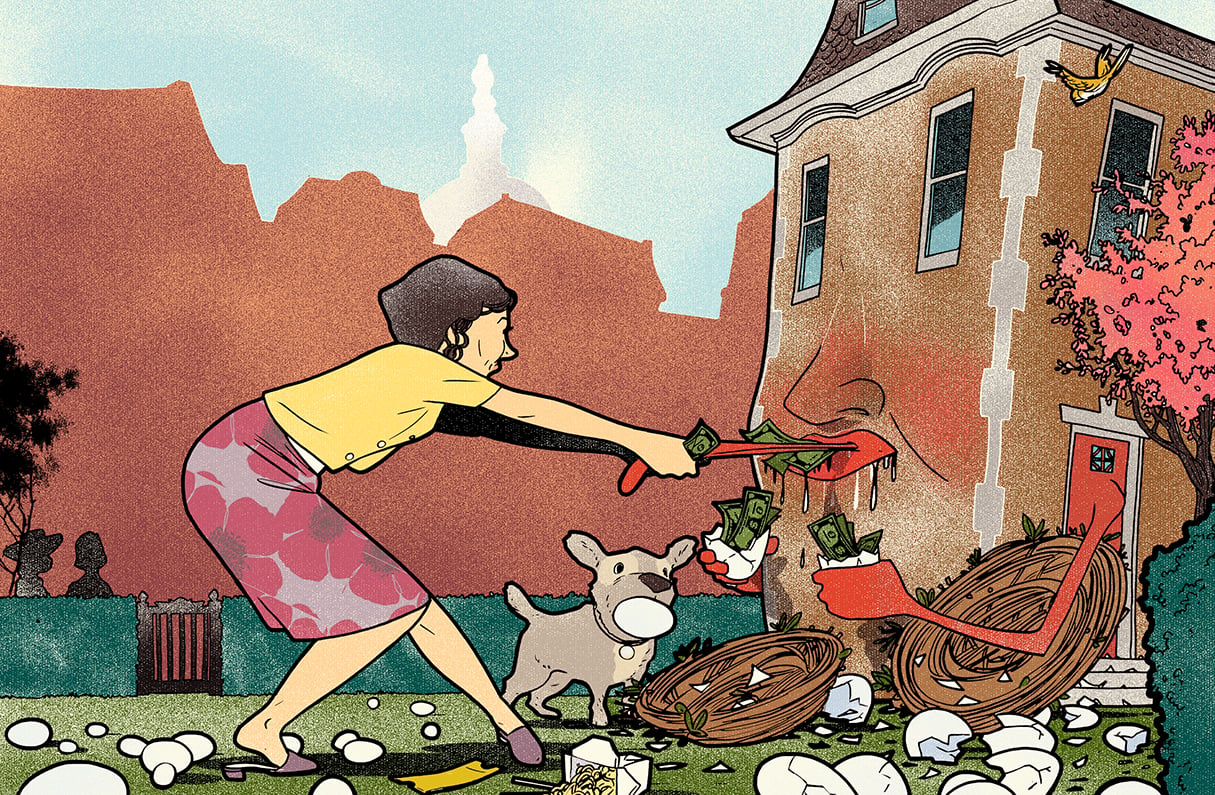I read once that a male movie star needs four things to be handsome—a large head, good teeth, a deep philtrum (that vertical indentation between the nose and lips), and a cleft chin. My father had them all.
After my mother ran away from him when I was a baby, he got his big break—a Sinatra movie, Lady in Cement. The first time I saw him on television, when I was seven, my mother and I were living in an apartment in West LA. During a commercial on Marcus Welby, M.D., she said, “It’s Andy.” She said it with a “did you see that?” incredulity, as if a coyote had crept out of the canyons and flitted by our window. I had less than 30 seconds to study the man catching a blonde’s Ultra Brite kiss. After that, I kept an eye out. He was a corrupt businessman on Charlie’s Angels, a detective on Police Woman, a politician on The Rockford Files.
Forty years later, I cast the same scrutiny over the arriving passengers at Reagan National. He walks toward me on spindly legs, his baseball cap low. Incognito, befitting the star he was supposed to become.
People stop him in Starbucks—“Hey, aren’t you . . . ?” Maybe they’ve seen him on Battlestar Galactica or with Robert De Niro in Bang the Drum Slowly. They used to mistake him for Paul Newman. Now, at 70, he’s confused with British actor Bill Nighy. He always nods and says, “Yes, it’s me.”
“He takes you in with casual charm and easy persuasion,” my mother says.
As he kisses the top of my head, it’s hard to muster the old hurt.
“So how ya doin’, kid?”
“Fine—I’m good.”
He squints one eye, as if he can see inside me to divine whether it’s true. He’s been doing this since we met when I was 17. Out of the blue, he tracked me down, wanted to finally know his daughter. Despite all my mother had said, I wanted to meet him, too.
Quickly, I learned not to let down my guard—never say anything he could use against me later when he was drunk. Later, when he assessed me with the cold calculation he now uses to handicap racehorses. Later, when the daughter he’d called beautiful suddenly was “fat” or “stupid.” He’d conjure a slight so as not to speak to me “until you deserve it.” Then invite me back into his good graces when he needed money.
At baggage claim, he puts a protective hand to my back. A flash of the time I hit him between the shoulder blades. I was 25. He’d turned away, raging at me to get out of his sight. My fist landed with a satisfying thwack. He swung around to strike but held back.
Our only connection in recent years has been the phone. At first when I’d see his name on caller ID, I’d let it ring. One day when I answered, we began talking about classic movies—Shane, Yellow Sky. It’s our safe zone. I’m not sure if movies will carry this weekend visit, but I’ve invited him to stay with my family for the first time.
I slow my pace to match his herky-jerky walk—a result of the accident that made him stop drinking. Stumbling out of a bar, weaving on a dark road, he was hit by a motorcyclist and spent a year relearning to walk.
As he asks about my kids, I reassure myself I’m not being a victim to his charms once again. He’s different now. I’m different. I tell myself the old coyote, wild at the window, can finally come inside.
Rockville writer Andrea Jarrell (akjarrell@gmail.com) is working on a memoir. This article appears in the July 2014 issue of Washingtonian.



















